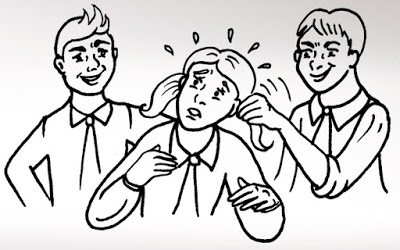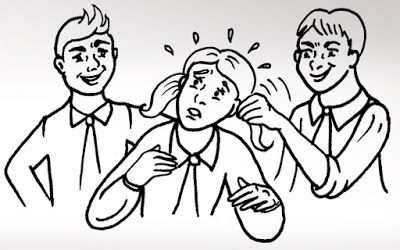Answer to the questions "what is bullying?" and "what should parents do?" Greek Police gives on the occasion of today's Day against School Violence and Bullying.
In particular, according to its website, school violence and bullying among students are considered a social problem. The term used internationally to describe the phenomenon of school bullying is "bullying". It comes from the verb "bully" which means "I hurt or terrorize or force someone to do something they don't want to do".
It concerns a situation in which intentional, unprovoked, systematic and repetitive violence and aggressive behavior are exercised, in order to impose and cause physical and mental pain to students by their classmates, inside and outside the school.
It is a phenomenon that is reinforced by the wrong treatment, as most cases are silenced because they are considered to stigmatize the perpetrators, the victims and the prestige of the school.
However, this phenomenon has many serious consequences, both in physical and mental health, and in the psychosocial development of the child, sometimes with dangerous consequences and tragic consequences.
The most common manifestations of intra-school violence are:
Gestures, pushes, beatings.
Verbal attacks, insults, threats, insults.
Blackmail, destruction of personal belongings.
Thefts.
Sexual harassment, abuse.
Exclusion from groups, games, activities.
Indications that may indicate that a child has been bullied at school are:
Decreased mood or refusal to go to school under the pretext of malaise.
Unjustified absences.
Unexpected learning decline reflected by falling grades.
During breaks, he spends his time around teachers and offices.
It changes routes to and from school.
His clothes are often damaged.
He has marks and bruises on his body or other signs of an attack and avoids explaining how they happened.
He often loses his things.
He often asks for money.
He refuses to participate in school events and activities.
There are persistent sudden changes in his mood.
He complains of psychosomatic problems.
The parent must:
Talk to your child about their rights, the rules of behavior at school, and how to deal with the phenomenon.
To strengthen the friendship and to show the solidarity of the company.
To be informed by the teachers about the behavior of his child within the school.
To reassure the child victim that he or she is not responsible for what happened.
Remind him that he cares and that his role is to protect him.
To encourage him to discuss relevant issues and to explain to him that the notification of incidents is not a "nailing".
To be addressed in time to the teachers and to the management of the school.
Seek the help of a mental health professional if necessary.
Source: newsbeast.gr

